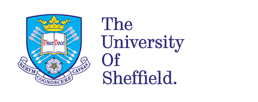
Lucie Jurek, Matias Balthazar, Sheffali Gulati, Neda Novakovic, María Núñez, Jeremy Oakley, and Anthony O'Hagan. (2021).
University of Sheffield
Publication details: Jurek, L., Balthazar, M., Gulati, S., Novakovic, N., Núñez, M., Oakley, J. and O'Hagan, A. (2021). Response (minimum clinically relevant change) in ASD symptoms after an intervention according to CARS-2: consensus from an expert elicitation procedure. European Child and Adolescent Psychiatry, doi: 10.1007/s00787-021-01772-z
Background: The lack of consensual measures to monitor core change in Autism Spectrum Disorder (ASD) or response to interventions leads to difficulty to prove intervention efficacy on ASD core symptoms. There are no universally accepted outcome measures developed for measuring changes in core symptoms. However, the CARS (Childhood Autism Rating Scale) is one of the outcomes recommended in the EMA Guideline on the clinical development of medicinal products for the treatment of ASD. Unfortunately, there is currently no consensus on the response definition for CARS among individuals with ASD.
Objective/Hypothesis: The aim of this elicitation process was to determine an appropriate definition of a response on the CARS2 scale for interventions in patients with Autism Spectrum Disorder (ASD).
Methods: An elicitation process was conducted following the Sheffield Elicitation Framework (SHELF). Five experts in the field of ASD and two experts in expert knowledge elicitation participated in a one-day elicitation workshop. Experts in ASD were previously trained in the SHELF elicitation process and received a dossier of scientific evidence concerning the topic.
Results: The response definition was set as the mean clinically relevant improvement averaged over all patients, levels of functioning, age groups and clinicians. Based on the scientific evidence and expert judgement, a normal probability distribution was agreed to represent the state of knowledge of this response with expected value 4.03 and standard deviation 0.664. Considering the remaining uncertainty of the estimation and the available literature, a CARS-2 improvement of 4 .5 points has been defined as a threshold to conclude to a response after an intervention.
Conclusion: A CARS-2 improvement of 4 .5 points responders could be used to evaluate interventionsí meaningfulness in individuals. This initial finding represents an important new benchmark and may aid decision makers in evaluating the efficacy of interventions in ASD.
Keywords: Autism Spectrum Disorder; Measure; Change; CARS; response; Expert Knowledge Elicitation; SHELF